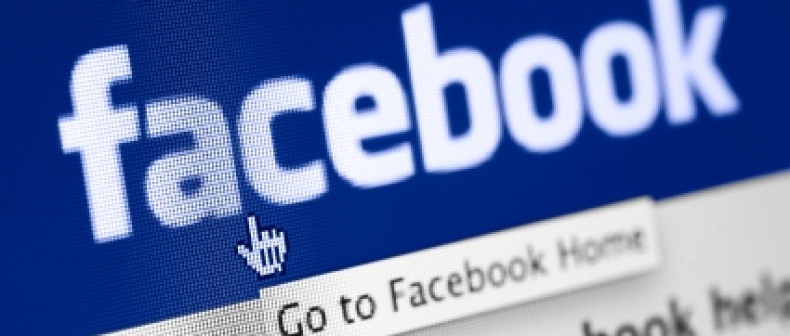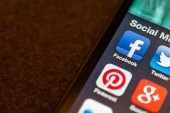
Last week, popular tech blog ReadWrite reported that a dead person Liked something on Facebook. And no, this wasn’t a zombie account used to promote Brad Pitt’s upcoming World War Z film or something gimmicky like that — this was a deceased user whose dormant profile somehow gave a tiny thumbs up for the credit card Discover.
As the article’s author, Bernard Meisler, points out, these Likes without consent aren’t limited to the buried and cremated, either. Apparently, the same suspicious activity is happening to Facebook accounts of the living, too. Meisler cites examples of a colleague with an anti-car friend who supposedly Liked Subaru, and an openly liberal voter who evidently clicked in favour of Mitt Romney.
The article resonated with many readers and garnered over 20,000 Likes — most of them probably intended. Commenters shared similar stories of these fake Likes popping up in their own news feed, such as an incarcerated brother who’d been mysteriously Liking a lot of different brands lately, or a friend from Denmark who passed away nearly three years ago only to somehow recently show interest in a baseball center from Arizona and a language program in Miami.
Besides the obvious pain and insult that might accompany seeing a dead family member’s avatar suddenly appear next to an endorsement for Mountain Dew, or the confusion and subsequent awkward conversations that may arise from witnessing a right-leaning friend abruptly favour an NDP fan page, if lots of fraudulent, manipulated Likes are floating around Facebook’s ecosystem, it could mean disaster for the company. As anyone keeping tabs on the plight of billionaire Mark Zuckerburg and his company knows, Facebook’s stock has plunged since its initial public offering last May, trading at 50% below its original price just a couple months ago. It’s not the direction investors want to see their shares heading, and the news of fake Likes probably doesn’t do much to help raise anyone’s confidence, either.
“Certainly, when advertisers are spending money on targeting the right people, they’re assuming that those Likes are accurate,” said Brian Carter, online marketer and author of The Like Economy: How Businesses Make Money With Facebook, over the phone. “So that’s a big deal when people look at things that they’ve Liked and say, ‘I don’t remember Liking this.’ And Facebook certainly doesn’t make it very easy to un-Like things.”
While the social network giant exists to connect people and ideas with other people and ideas, it also exists to connect companies with potential consumers. Done on a large scale, counterfeit Likes exaggerate a brand’s popularity and reach, and distort Facebook’s database of user information. Furthermore, any flaw or deceit in this relationship between platform and user can lead to distrust, which in turn might mean a mass exodus of companies and consumers alike. If anyone can simply add a Like to his or her page by sending a message containing the page’s url (which you can), it highly undermines the value of what a Like is supposed to represent (a person interested in something).
So where do these fake Likes come from? How are they created? In the same ReadWrite article, a Facebook spokesperson blames the fact the people sometimes make mistakes — they accidentally press buttons or forget what they did just a few days prior. It’s also possible that mobile devices and third-party apps are activating Likes without the user’s knowledge. In a follow-up article on ReadWrite, presumably another Facebook spokesperson points a finger at anything from Twitter bots to something called “click-jacking,” where someone thinks they are clicking on, say, a play or enter button, but are actually clicking on a hidden Like button.
“Facebook encourages their programmers to go in and make live changes to Facebook itself, so that means it might be harder to do quality control,” added Carter about the possible origins of these fraudulent Likes. “If a person is absolutely positive that she or he didn’t Like something, then it’s likely to be a software bug or deceptive button somewhere.”
Indeed, Facebook has been aware of fake Likes diluting its system for a while now. On August 31, Facebook released an official statement admitting that Like fraud does occur and that improvements will be made to restore brand integrity. In the statement, the company insisted they have never permitted the purchase or sale of Likes, and that a “Like that doesn’t come from someone truly interested in connecting with a Page benefits no one.
Sure enough, in the following weeks hundreds of thousands of Likes disappeared. According to CNN, Zynga’s Texas HoldEm Poker page dropped nearly 200,000 subscribers, Lady Gaga lost around 66,000 fans and The Simpsons page was purged of about 21,000 devotees. (It should be noted, however, that all of these fraudulent Likes represent no more than 1% of each page’s authentic subscriber base.)
“If you just want a high number of fans and you don’t care about those people being potential patrons of your business, it’s never been very hard or expensive to get them,” said Carter. “You can put out ads that say, ‘Click Like if you love bacon,’ and many people do. If you just want fans, you can get them for three to five cents a piece, but these people wouldn’t be valuable to businesses apart from making their fan base look higher.”
Ultimately, Facebook is great tool that many people use to organize events and stay in touch with friends located both down the block and across an ocean, and we shouldn’t expect Zuckerberg and his team of engineers to work for free to provide this service. Assuming no one wants to pay to open an account and spend time on the network, revenue through advertising is necessary. But if Likes are the currency of the Facebook economy, Facebook shouldn’t expect that high rates of counterfeiting won’t hurt their empire any less than they did Rome.
____
Paul Hiebert is a former staff writer for The Daily and the owner/editor of Ballast. Follow him on Twitter @hiebertpaul.














